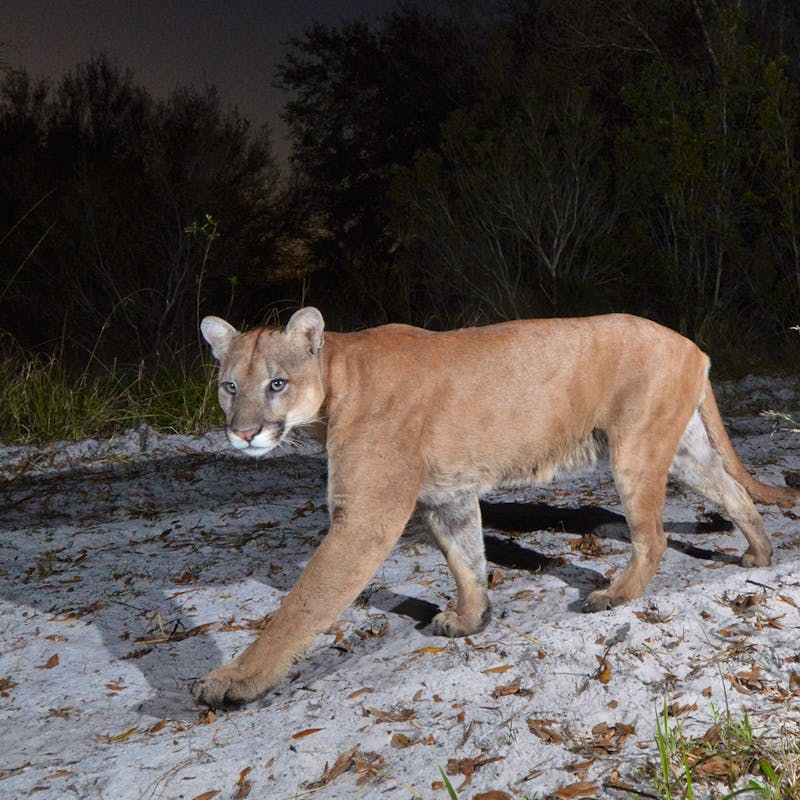 Ignoring the continued impacts of BP’s Deepwater Horizon oil disaster, the federal government illegally authorized new deepwater drilling by claiming that risky operations will cause no significant harm to the environment. Defenders was joined by three groups yesterday in challenging the government approval of Shell’s plan to conduct new deepwater exploratory drilling off Alabama’s coast even though regulators acknowledge that the operations may result in an oil spill ten times bigger than last year’s disaster in the Gulf of Mexico.
Ignoring the continued impacts of BP’s Deepwater Horizon oil disaster, the federal government illegally authorized new deepwater drilling by claiming that risky operations will cause no significant harm to the environment. Defenders was joined by three groups yesterday in challenging the government approval of Shell’s plan to conduct new deepwater exploratory drilling off Alabama’s coast even though regulators acknowledge that the operations may result in an oil spill ten times bigger than last year’s disaster in the Gulf of Mexico.
According to the National Commission on the BP Deepwater Horizon Oil Spill, special risks emerge when drilling ultra-deepwater wells at depths greater than 5,000 feet – including the risk of an uncontrolled blow-out (as was the case with Deepwater Horizon). But after a cursory 30-day review, the Bureau of Ocean Energy Management, Regulation and Enforcement (BOEMRE) determined that there would be no significant impact from new exploratory deepwater drilling by Shell Gulf of Mexico Inc. in about 7,200 feet of water – more than 2,000 feet deeper than BP’s Deepwater Horizon well (approx. 5,000 feet below the surface).
The government approved Shell’s plan to conduct new deepwater exploratory drilling off Alabama’s coast even though regulators acknowledge that the operations may result in an oil spill ten times bigger than last year’s disaster in the Gulf of Mexico.
That’s not all – the worst case scenario oil spill detailed in the plan is only as much as 405,000 barrels (17 million gallons) of oil a day for up to 128 days, which could result in a spill of 45 million barrels (1.89 billion gallons) of oil into the Gulf of Mexico. This is only a fraction of what gushed into the Gulf during the BP Deepwater Horizon oil disaster, which spilled more than 4.9 million barrels (200 million gallons) of oil.
Mike Senatore, Defenders’ vice president of Conservation Law said, “BOEMRE has admitted the old environmental analyses were rendered obsolete by the Deepwater Horizon disaster. But even after acknowledging that they need to take a new look at the risks of deepwater drilling, the agency is moving forward with blinders on.”
More than a year after the BP Deepwater Horizon oil spill, effects are still clearly present, including fishermen reports of Gulf finfish like red snapper with open and unhealed sores, University of Georgia scientists documentation of a seafloor still covered in oil and dead creatures, and University of Central Florida research that recently linked the oil spill to more than 150 dead dolphins that washed up on Gulf coasts since January 2011, including 65 newborn, infants, stillborn or those born prematurely.
Scientists are still examining the full impact of the disaster, including impacts that may show up over time in the Gulf food chain and in future generations of aquatic life. Many communities and residents whose livelihoods and culture are tied to the Gulf through fisheries, seafood, and tourism are still recovering from the impact of the months-long BP Deepwater Horizon oil spill.



